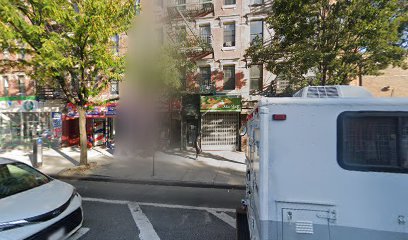An op-ed piece in The New York Times by sociologist and political commentator Michael Eric Dyson said of the Ferguson grand jury decision and aftermath, that it “illuminates” the racial divide in the country. Which it certainly does. Although Ferguson, and any similar episodes in which people of color have cause to question a systemic unfairness, pale by comparison with what, in recent history, has been the most in-your-face representation of color cleavage in the society. If there is perhaps more of an edge in reaction to occurrences like Michael Brown’s killing by a white cop in Ferguson it’s understandable, coming as it does when there’s been nothing more graphically illustrative of the country’s racist core than the contempt in which President Obama is held by so much of the citizenry. Ferguson merely accentuates an already existing negative.
Then of course there are people like Rudolph Giuliani who, we prefer to believe, must have deliberately repressed hard-core views on race to get New Yorkers to elect him mayor. Nowadays, Giuliani is free to give unrestrained voice to his feelings, deflecting a question about persons of color being killed by white police officers with the self-serving observation that black-on-black killing is what instead ought be discussed. It was left to Dyson, also in the conversation on NBC-TV, to interject that most of the perps responsible for those black-on-black crimes get sent to jail, a far cry from how white cop killings of blacks get resolved.
Even as mayor, Giuliani let on that he viewed people of color through a whole different lens. One recalls his craven conduct in unsealing the juvenile record of Patrick Dorismond, after the young man had been shot and killed by a cop on a New York street. And we recall, too, one Newsday journalist’s recounting of the markedly different responses the freshly installed mayor had for queries from the white (encouraging) and black (dismissive) sectors of a Staten Island town hall gathering.
Given what we like to think of as this town’s cachet, it seems improbable that there could be a member of New York’s political class so ideally representative of racial intolerance in the society. With at least one other name, to boot, that we can think of, the detestable Donald Trump, also worthy of enshrinement in that hall of shame.
Like many of us, Dyson isn’t exactly brimming with confidence about the society’s ability to effect a shift anytime soon that would manifestly change the racial dynamic. Who can blame him when, enigmatic as ever, the country could conjoin election of the first African American president and some of the most vehement displays of race-based hate we’ve seen in a while? Paradoxically, Dyson chides President Obama for his soft-pedal approach in what passes for his identifying and attacking the country’s failings on the race issue…including moral deficiencies on the black side of the divide. “The president has lectured black folk about our moral shortcomings,” Dyson said. “And yet his themes are shopworn and mix the innocuous with the insidious: pull your pants up, stop making racial excuses for failure, stop complaining about racism…”
In terms of a way forward, after referencing the alarming conclusions of the Kerner Commission on race in America, appointed by LBJ in the wake of the 1967 Detroit riot, Dyson calls out the nation as a collective, but pointedly names the president: “If our president and our nation now don’t show the will and courage to speak the truth and remake the destinies of millions of beleaguered citizens, then we are doomed to watch the same sparks reignite whenever and wherever injustice meets desperation.”
We have no reason to doubt that injustice will continue to meet desperation in the short term and quite likely for the long haul as well. We look at the very town of Ferguson, Mo. that has been the flashpoint on this occasion, and take note of one statistical reality on the ground there that stands as nothing short of cold defiance in 2014: that the police department comprises 50 white officers and three black ones, in a town that is reported to be 67 percent African American. It’s a given that the replications of that Ferguson-style intractability, on law enforcement and Lord only knows whatever else, must be legion around the country.
Professor Dyson’s criticism of President Obama notwithstanding, we cannot ignore one overarching truth about where the post-Ferguson road takes us. And that is that the country’s political directorate is too thickly speckled with those for whom the indifference of a Ferguson to the legitimate aspirations and rights of citizens is not the least bit bothersome.






















